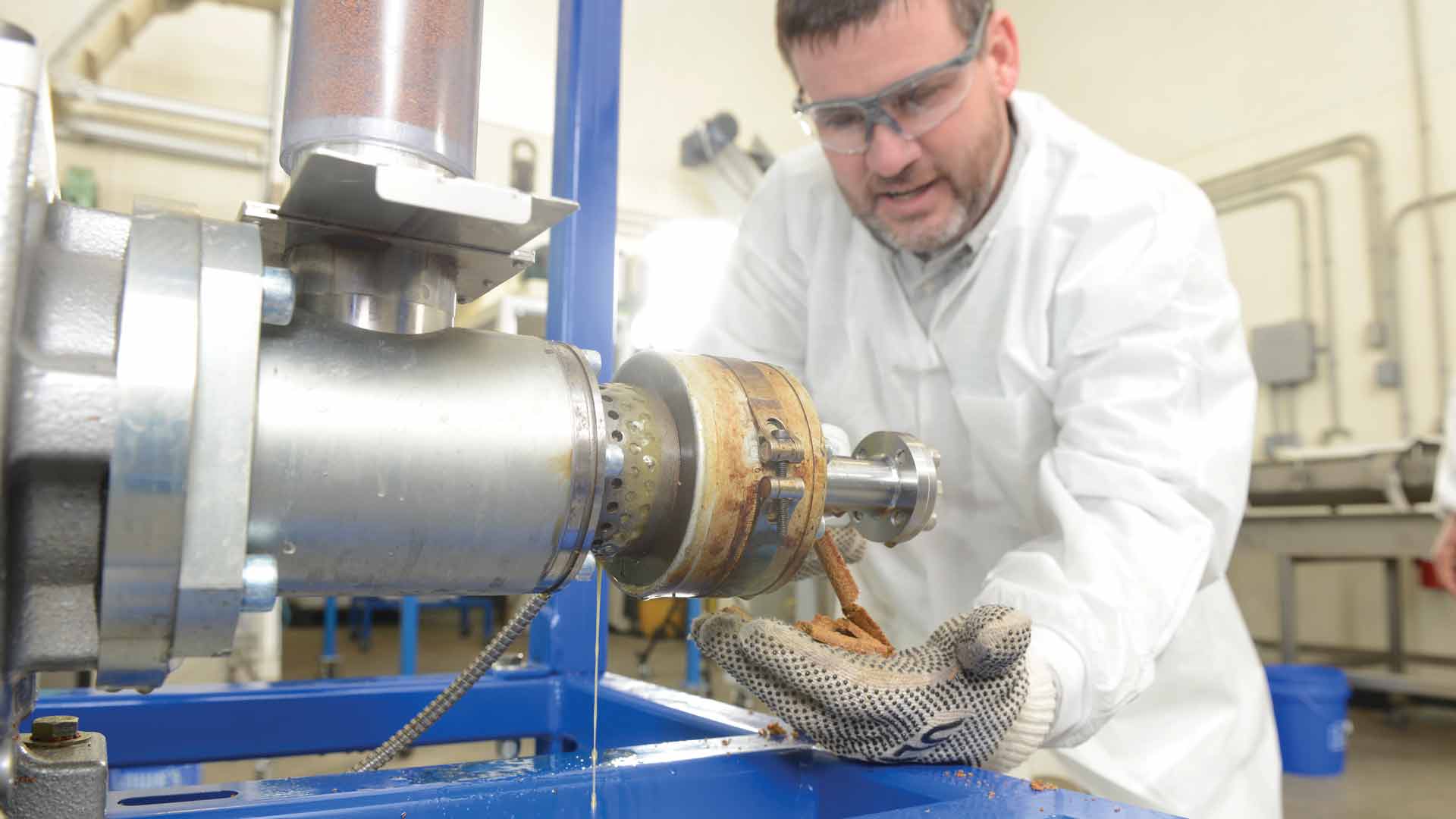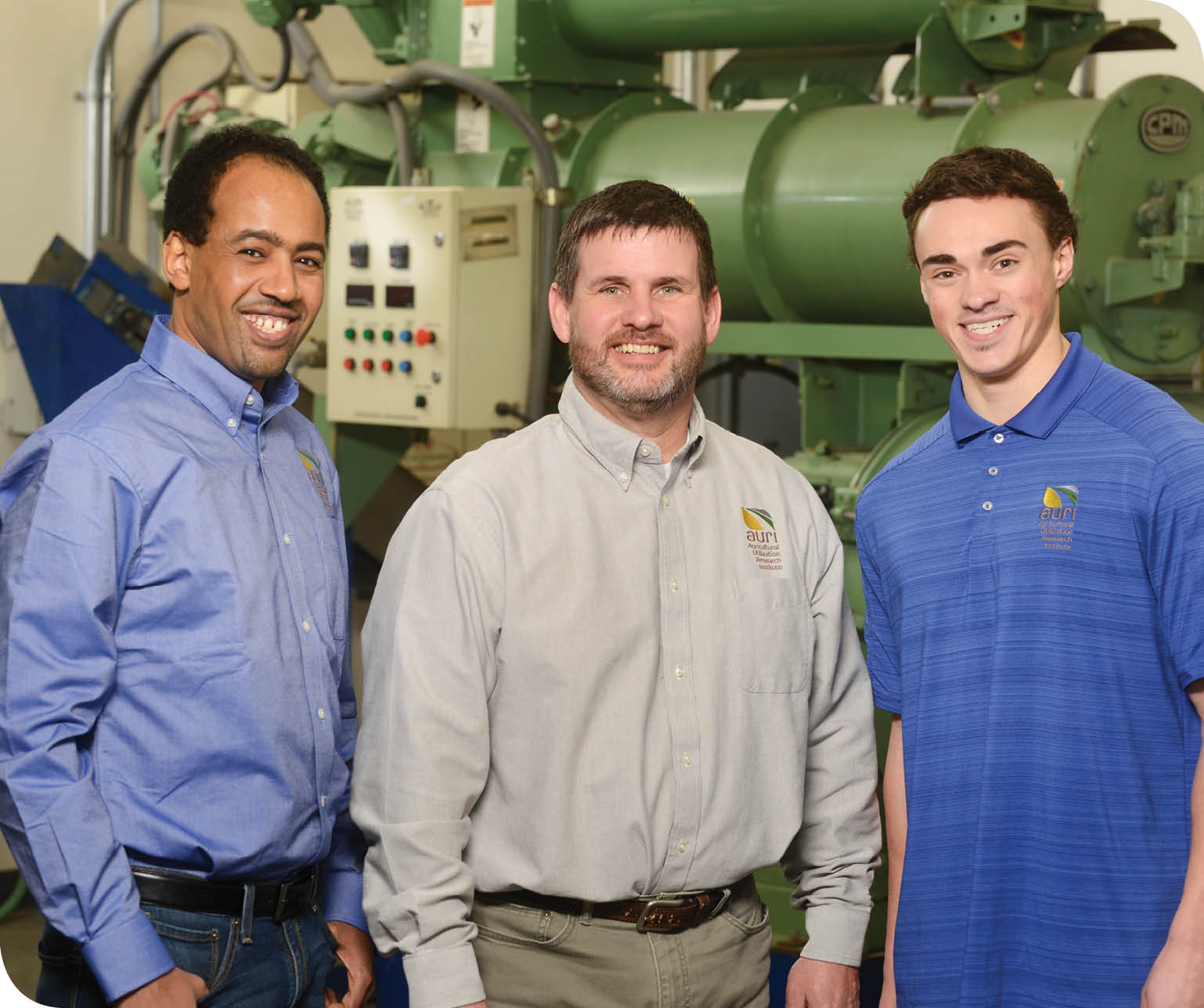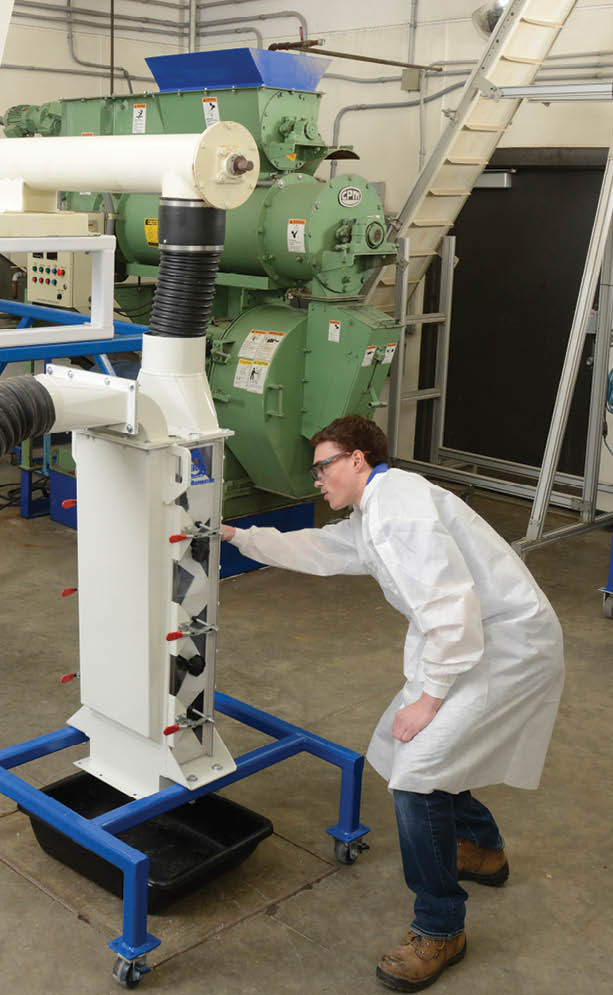It has taken a lot of work, dedicated hours and collaborations to advance AURI’s programs and resources from its creation in 1989 to where it is today, but the investment of time, effort and resources is paying off.
AURI is experiencing an explosion of innovative agricultural opportunities, especially in the focus areas of food, coproducts and biobased products. This has made for a steady and significant increase in AURI’s workload of clients, initiatives and programs.
Strategically, AURI has committed additional resources to not only meet the increasing demand, but to also proactively anticipate what future needs will impact Minnesota’s agricultural economy and producers. To help achieve this lofty goal, AURI recently hired new and additional staff and has plans to expand its laboratories to further the organization’s mission.
While the equipment and site upgrades are instrumental in growth, leadership at AURI is quick to point out the greatest resource and support of AURI is its people. The new staff brought on board include Riley Gordon, Monte Koshel and Jason Robinson and each brings a new skill set to the teams they serve.
Riley Gordon
Riley Gordon joined AURI in July 2017 to serve as an engineer, providing laboratory and technical assistance. His background in physics and civil/environmental engineering allows him to be a resourceful problem solver. Gordon offers an alternative, analytical viewpoint to projects and challenges that AURI faces. Gordon works on projects in each of the four focus areas of AURI: food, coproducts, biobased products and renewable energy. He’s involved on various oil pressing projects, including work on pressing harder, smaller seeds that require additional preparation to successfully extract the valuable
seed components.
Gordon also helped with a biobased project focused on a soy-based road sealant, by collecting and coding asphalt cores for a third party blind study. He also helped interpret the data results, including statistical analysis of the data.
Along with other AURI staff, Gordon pursues the technical feasibility of value-added industrial hemp products, including HempCrete, an environmentally friendly, high performing insulative material made from hemp hurd, a byproduct of hemp fiber.
Gordon is quick to admit that he is just learning the ropes and gives a lot of credit to his colleagues, especially Al Doering, who Gordon describes as an exemplary mentor during his brief time with AURI. Gordon sees the strong, professional relationships as paramount to the strengths and growth of AURI. According to him, “AURI’s staff has worked hard over the years to do great work for their clients, which in turn builds lasting, professional relationships.”
Monte Koshel
AURI welcomed Monte Koshel as Project Manager earlier this year. While growing up, Koshel’s family operated a cattle and small grain farm in northern Manitoba. It has been remarkable for him to see how much has changed in the farming industry in the past 20 years because of technology and techniques.
As Project Manager for AURI, Koshel leads and coordinates efforts of team members to plan, execute, and deliver AURI projects, as well as secure additional external funding opportunities. According to Koshel, “My main goal at AURI is to match up professionals within our organization to entrepreneurs in our network. People drive successful ventures. My goal is to connect those people who can create that perfect situation for fostering ideas to success.”
As AURI grows, Koshel hopes his role as project manager helps ease the process of delivering impactful outcomes. “Farmers are some of the most innovative people I know. That entrepreneurial spirit is what drives the ag industry constantly into new territory.
I look forward to working with the AURI teams to help others make their ideas reality.
It’s exciting to work with people inside and outside the organization who are so passionate about new ways to use familiar products.”
Jason Robinson
As Project Development Director, Jason Robinson acts as the first point of contact with potential clients in the food focus area. His goal is to educate, and ensure a potential client project fits with the mission and capabilities of AURI facilities and staff. Once a synergy is found, Robinson works with the client to define the appropriate scope of work for their stage of business and match them with the right AURI or external resources. He has significant experience in business and brand building, which he uses to help guide clients to build a stronger, more sustainable business model or product proposition. His client-first approach is really all about building a relationship and defining needs. He believes AURI is about empowering each client with the knowledge and resources to move their passion ahead – customized to each client’s unique needs.
Robinson’s first exposure to AURI was during a session at the Twin Cities Startup Week in October, 2017. According to Robinson, the combined strengths of AURI’s mission, nonprofit structure, and technical aptitude put it in a unique position to not only drive the innovation ecosystem in MN forward, but also provides an unbiased, trusted, technical voice.
Expansion And Updates In Sensory And Coproduct Pilot Labs
For years, the AURI labs have operated effectively within a small footprint. However, expanding the physical space of the coproducts pilot lab and creating improved sensory capabilities will provide both a more efficient environment as well as improved resources to better serve clients and industry.
Sensory Lab
A new, shared sensory lab will be located in the Individualized Learning building on the Southwest Minnesota State University (SMSU) campus, in Marshall. Currently, the Culinology Department uses the space for a sensory course. AURI and SMSU hope the new lab will open by the end of 2018. Included in this endeavor are new sensory booths, an upgraded room for food preparation and the data collection equipment to record input and conduct statistical analysis. The purpose of this lab is to better meet requested AURI client needs for assessing their products.
This lab will allow AURI to give clients qualitative and quantitative data about certain sensory aspects ranging from taste, sight, smell, etc. This data can then be used by clients to adjust their product to better reflect consumer preferences.
In addition to the sensory lab, AURI plans to make improvements to the functionality of its Marshall site by upgrading security and safety equipment. In addition, AURI enhanced its meat lab in 2017 by adding a developmental kitchen within the space.
The sensory lab addition will improve AURI’s work with food clients and continue to strengthen the relationship with SMSU as both organizations will share the facility for both educational purposes as well as providing a new technical service to AURI’s food clients.
Coproduct Pilot Lab in Waseca
AURI’s Pilot lab activities continue to grow along with the increased scale of research conducted by its scientists and staff. To address these needs, various lab improvements are coming to the facility in Waseca, MN. AURI is exploring an expansion to the footprint of its existing lab located at the University of Minnesota Southern Research Outreach Center to add space for new equipment and research operations. This expansion will allow for more efficient equipment operations and clean up while adding a ‘food grade’ production room for oil extraction.
This expansion will nearly double the current footprint of the pilot lab while also upgrading belt conveyors and material handling equipment to improve processing, research and development efficiency. Some of the new equipment recently added to the AURI Coproduct Pilot Lab includes:
Cold Oil Press used to extract oil, without using solvents, from a variety of oilseeds. Along with the oil, a valuable coproduct results in the press cake or meal from the pressed seeds. AURI works with many clients to investigate new oilseeds and the potential value for a variety of applications ranging from new perennial cover crop developments to high-value specialty markets for the oil and meal. A variety of projects utilize the oil press, including the need to collect oil from perennial and annual oilseed crops to evaluate its nutritive and performance as a food-grade oil, and press cake meal from oilseeds that can be utilized for everything from human applications to new protein sources for livestock. With the high demand for this piece of equipment, and requests to produce a food-grade oil for further product development, AURI opted to include a small food grade processing room in its expansion plans.
Multi-Aspirator. The industry uses aspirators to complete fast separations of material based on their densities. For example, during the processing of some shelled nuts, the shell is cracked and then run through an aspirator where the seed falls through while the lower density shell is air-swept away from the heart or core. This new piece of equipment will allow AURI to support numerous projects it could not assist with in the past.
AURI’s Coproduct Pilot Lab will also add a new dryer. AURI clients often develop value added opportunities that require some level of drying due to high moisture content. The addition of a new dryer will give AURI the capability to expand product development for wet coproducts and provide valuable data to the client.



